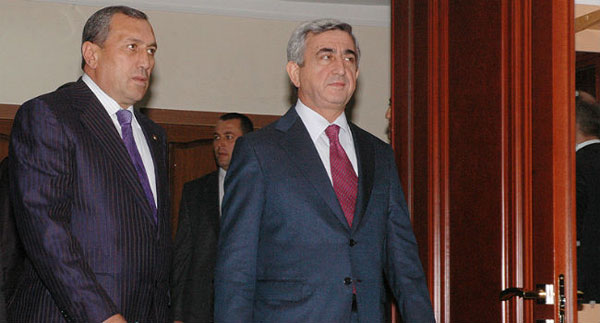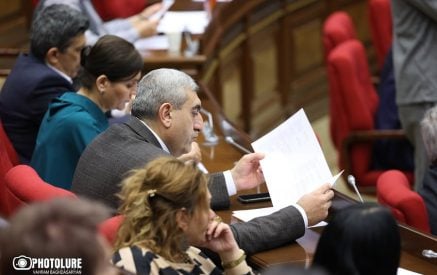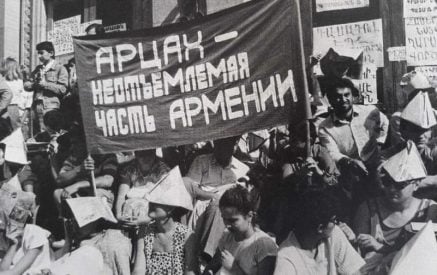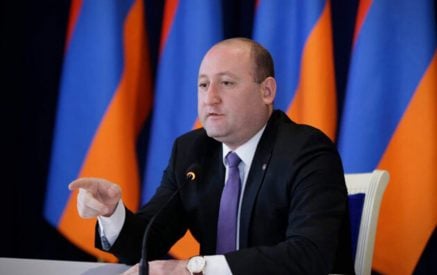The foundation of Armenia’s current political, economic, religious, cultural system has been laid down since May 1994 after the cease-fire. The logic of the war has been penetrated into civilian life, where the power was gradually concentrated in the hands of Vazgen Sargsyan’s. The latter, on the one hand, of course, is one of the major makers of our victories and the Armenian Army, on the other hand, the ‘co-founder’ of today’s defective system. The impunity of the officials, authorities, oligarchs and “security guards”, the extreme impertinence and cynicism, resolving the problems with the help of shootings and beatings, the feast of mousers and leaders, destruction of the electoral system (“who is he to come and rule instead of me?”), the roots of all these must be searched in the state and social mechanisms established in the mid 90s.
I assume that in 1999 Vazgen Sargsyan himself understood where the country is headed to due to his “orders” as well, but to change the “orders” he could not manage. Could he do it or not, is hard to say. Such an approach may be conventionally called “logic of the war”. It is manifested in all areas, beginning from management style: “call a subordinate to my office, give couple of curses, give one or two slaps and let him do the job” (“a strong leader”). In the jurisprudence: “I have shed my blood for this country, so why should I pay for the electricity like others”. In the economy: “This area belongs to me, if you want to start a business, you should ask me.” During the election: “Do they want power? Now I will tell my guys to show them their places.”
During the rallies: “What do these patients want? Do they suffer from nostalgia of sausage? Let the tanks go over them, then they will know.” (A question occurs: why people should not want sausage, if you eat “modest meals” every day spiced with “modest vodka). Do you now understand why multi-term governor of Syunik Marz has four grade incomplete education, although he has a PhD in History (thanks to money), it is clear that whatever he does, it’s all the same, he will not be punished. Is it clear why bloody settlings of scores periodically occur around the “intellectuals” of this level? Still I would not like to simplify the problem. It has been 20 years that in Armenia people connected with the war, in one way or another, have power, starting from three presidents. You can say as a lot better, so as many bad things about them. But the presidents and many of subordinates in the pyramid of power have some “mite” in the liberation of Karabakh. Now imagine that all of those groups with their terribly defects are leaving the public and political arena. Who is coming to replace them? More discreet, modest, educated, less impertinent and corrupted people? God grant it happens. More compassionate towards Armenia and Karabakh? I do not know. I really do not know the answer to those questions. Perhaps under the influence of emotions, many of them under “hot head” will give rapid assessment and will blame me in something. But I recalled a conversation with Hrant Mathevosyan about 20 years ago. He asked a question and I said something, and our prominent prose-writer noted: “You respond quickly.”
Read also
Aram Abrahamyan



























































